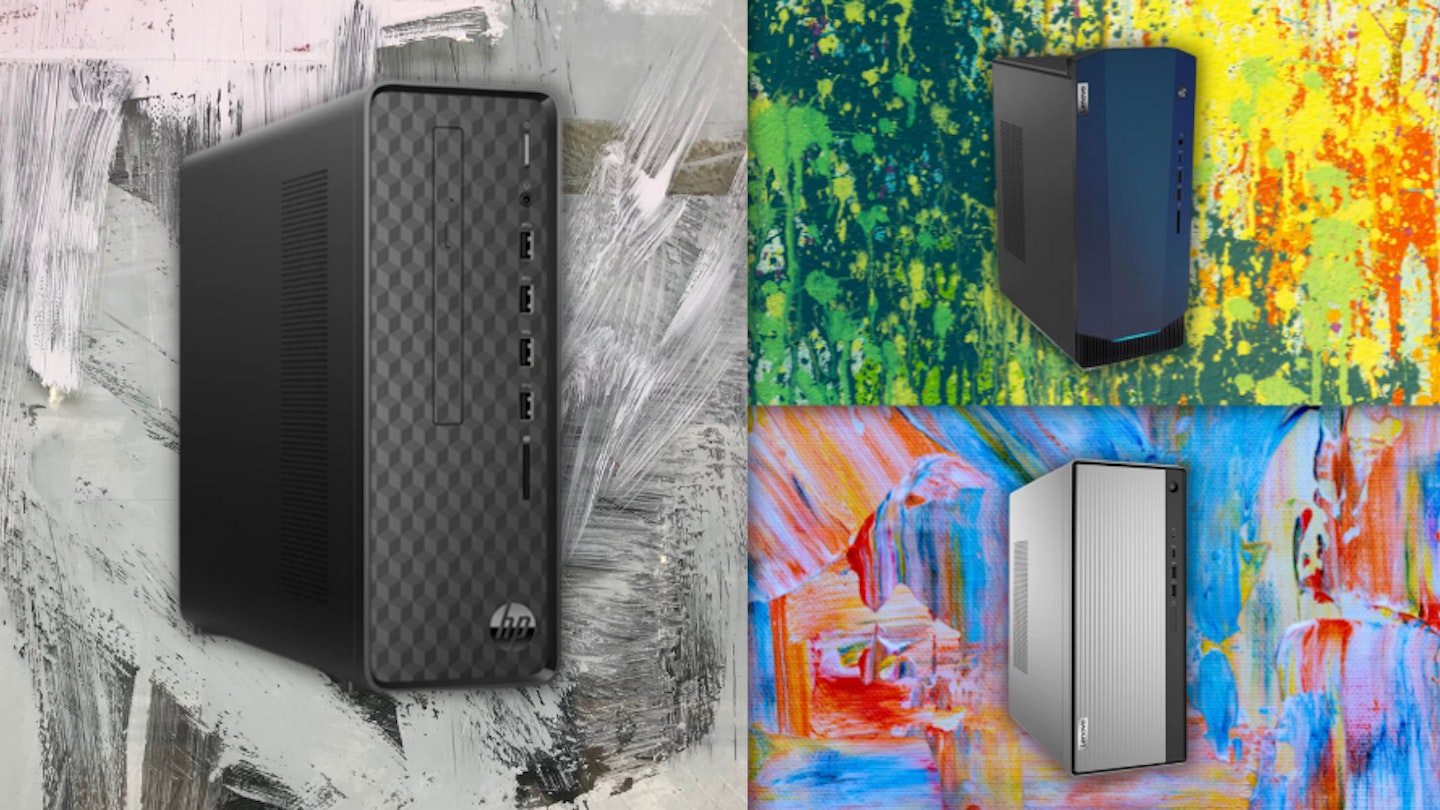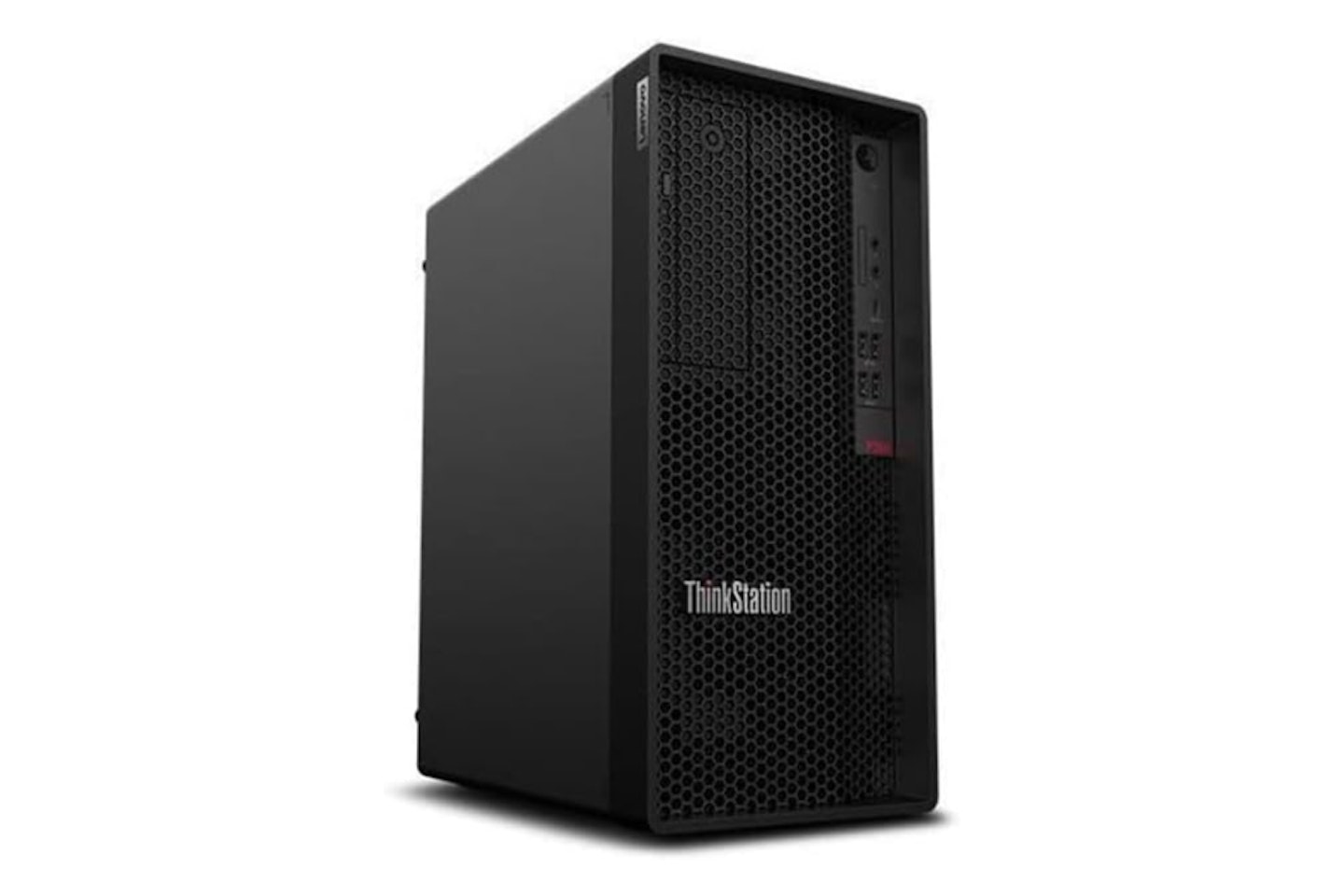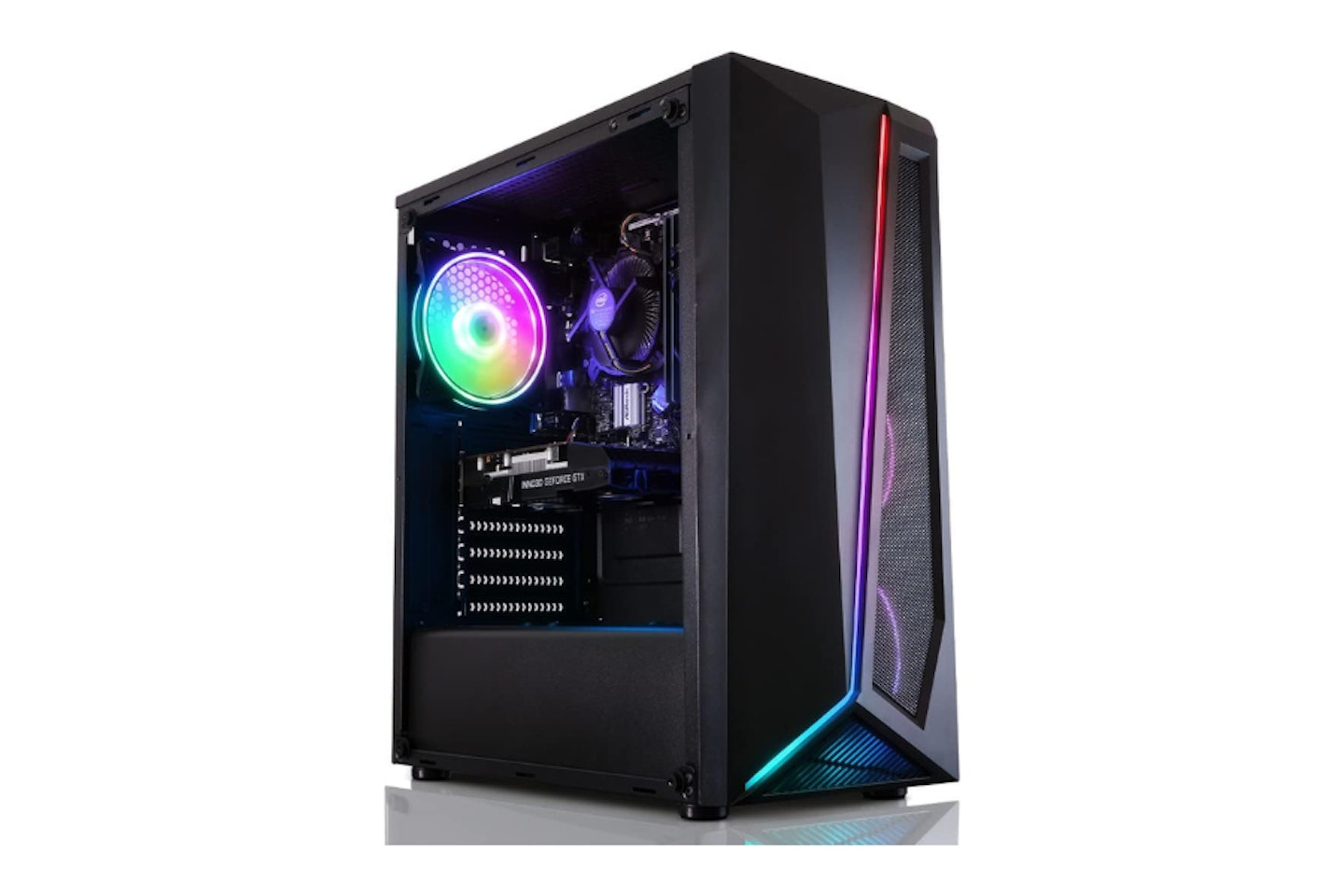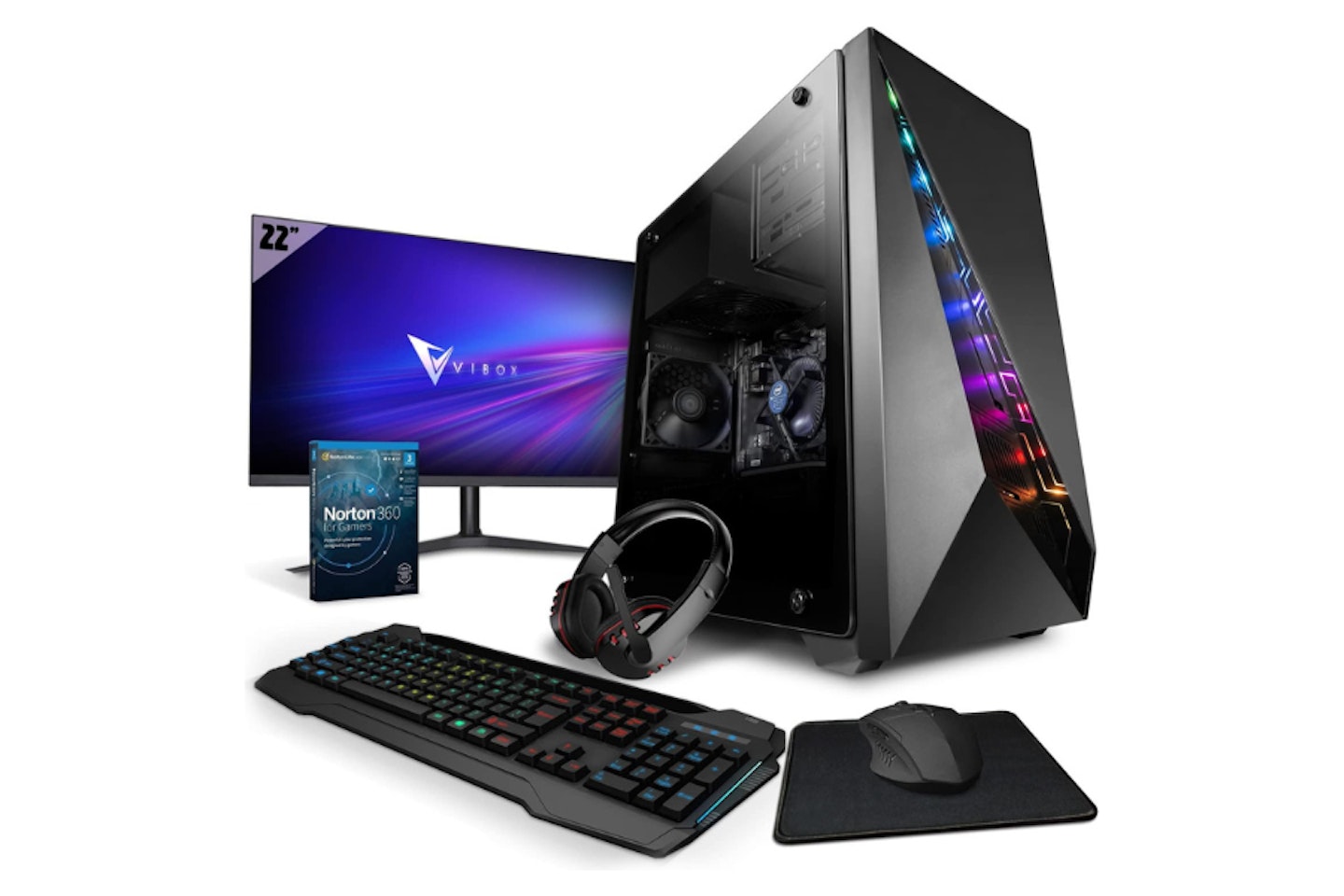A desktop PC delivers more performance power, wider customisation and better longevity for those working from home. With some excellent deals on powerful tech this year, shoppers can pick up a home PC that'll outcompete even some of the most expensive laptops with ease.
Due to their size, a desktop PC is far more effective at temperature regulation, whereas most laptops eventually falter after years of constant use. There's really not much you can do once the fans of a laptop give out, aside from forking out a good chunk of cash to have it repaired.
Of course, PCs aren't invulnerable, sometimes components give out unexpectedly - but herein lies the major advantage of a PC tower, replacing a component is incredibly simple and cheap, meaning a proper desktop can last for years to come.
The best home PCs at a glance:
• Best home PC: Lenovo ThinkStation P360 Tower Desktop - View at Amazon
• Best budget home PC: ADMI | Desktop PC - View at Amazon
• Best micro home PC: HP S01-aF1015na Slim Desktop PC - View at Amazon
• Best performance home PC: Beelink Ryzen Mini PC - View at Amazon
Even if components aren't broken, but you feel like a hardware upgrade might be a good idea, then you can very simply swap out any component for something with a little more heft, without needing to replace the entire PC.
We've scoured the internet far and wide, and have found ten of the very best PCs that are absolutely perfect for the home office, from HP, Dell, Acer, Lenovo and more of the leading brands in the UK, all of our choices take value into consideration, so you're getting the best performance at your budget.
All of our PC picks are below £800, so you'll still be able to afford a solid monitor, keyboard and mouse to go along with your new rig.
If our picks don't quite scratch your itch, we've got yet another brand-new selection of the best budget PCs and laptops of the year - problem solved.
The best home PCs
Best home PC of 2023
If you're delving deep into colossal work projects that ask for the most from your hardware, be it editing, designing or even programming - the Lenovo ThinkStation is the perfect desktop for you.
Rugged, mighty and brimming with hardware to rival even a great gaming PC - Lenovo's ThinkStation P360 is unbeatable in its speed and remorseless in its processing power - tackling any heavy tasks with ease.
The Lenovo ThinkStation is simple, understated and formal in its design (which may be to some users' disdain), but underneath its humble aesthetic that lacks any and all RGB lighting is a rip-roaring rig that's more than worth its price.
Pros
- Immensely powerful work PC
- Made with upgradeability in mind
- Good value for components
Cons
- Perhaps a little too much performance heft for work PC
| Graphics card: | Intel UHD Graphics 770 |
| CPU: | Intel Core i7-12700K vPro |
| RAM: | 16GB |
| Connectivity: | HDMI x 1, DisplayPort 1.4a x 1 |
| USB: | USB-A 3.2 Gen 1 x 6, USB-A 3/2 Gen 1 x 2 |
| Storage: | 1TB SSD |
| Software: | Windows 11 |
- Customer review: "Great for work, connectivity, programming."
Best budget home PC
Easily our most budget-friendly deal of the year, HP's S01 slim desktop truly looks the part in any home office with HP's signature cube-covered isometric textured design that was simply too good for us to ignore.
With plenty of USB ports, an SD card reader, as well as a proper DVD drive that's increasingly rare in modern PCs - HP's S01 has a highly functional, user-friendly design that makes it all the better for use around the home with the whole family.
Inside the glossy case is some decent hardware for the low budget, 128GB of SSD storage that can be expanded with the SD card slot, a dependable Intel Pentium J5040, and a modest, yet functional Intel UHD 605 integrated GPU.
What's less thrilling, however, is the rather meagre 4GB of RAM - which you'll want to upgrade whenever you can, and luckily with a proper desktop, upgrading your RAM is a piece of cake.
This is the perfect desktop for a beginner and is still great for basic office work at a budget price.
If all these PCs just didn't quite cut it for you, here are the best laptops of the year, with tonnes of power, portability, and style.
Pros
- Beautifully designed
- Excellent value
- Solid hardware for easy browsing
Cons
- Low RAM
| Graphics card: | Intel UHD Graphics 605 |
| CPU: | Intel Pentium J5040 |
| RAM: | 4GB |
| Connectivity: | HDMI 1.4b x 1, VGA x 1 |
| USB: | USB 2.0 x 2 |
| Storage: | 128GB |
| Software: | Windows 11 |
- Customer review: "Quick to load and process everything I need it for (Writing and graphics mainly) and so quiet. I've not found any cons yet."
Best micro home PC
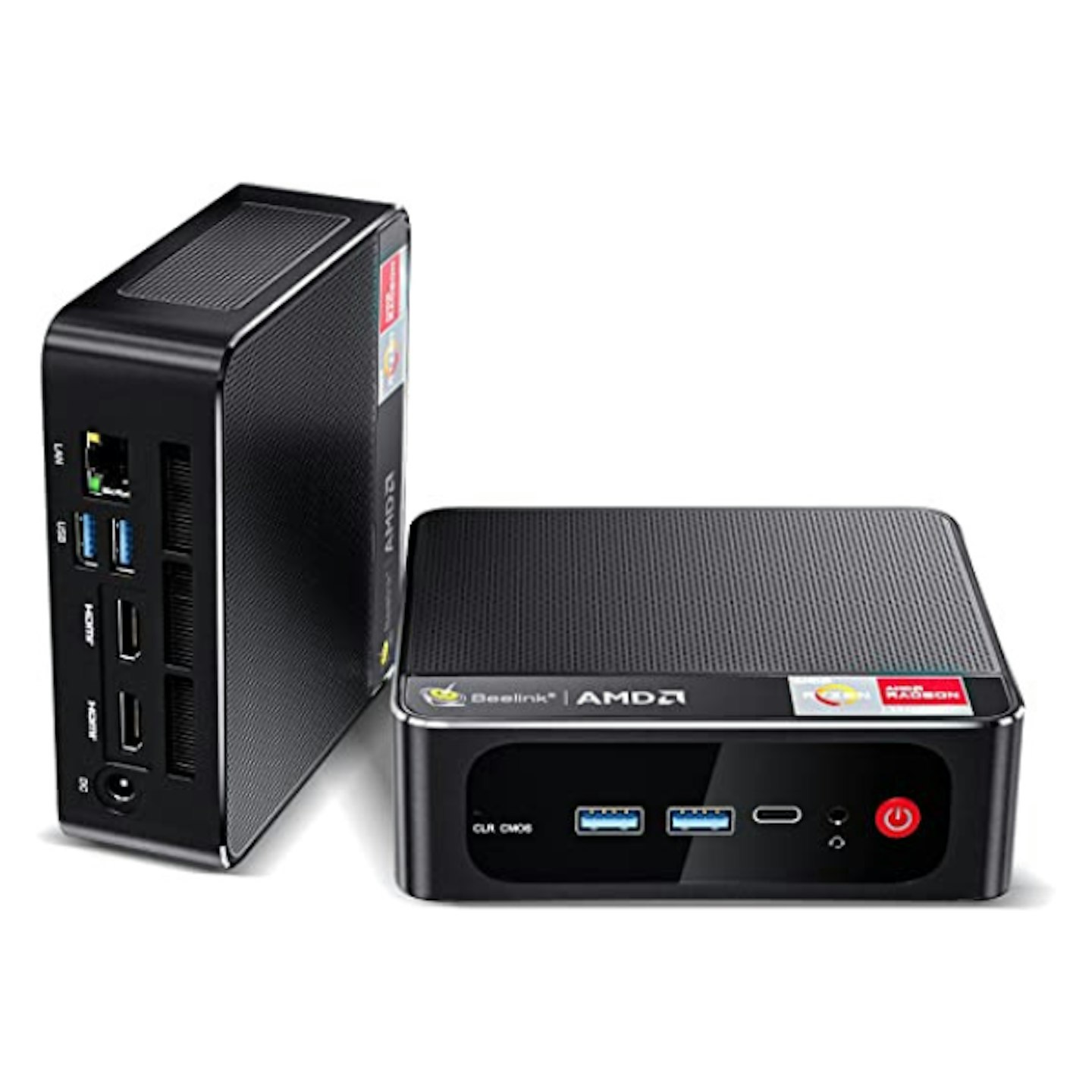
While you might mistake this incredibly small PC for a router, you might be surprised to learn that this mind-blowingly compact device is in fact, a desktop, and it has some serious grunt at that.
Beelink's mini PC is equipped with everything you'd expect from an excellent budget PC - 16GB of RAM, 500GB of NVMe SSD storage, a Ryzen 7 3750H CPU, and the latest version of Windows 11 - making it quite possibly one of the best value PCs on the market right now.
While not much can be said of its design aesthetic, it doesn't really matter too much simply because the PC itself can be so easily tucked away, its unobtrusive size makes it perfect for hiding in plain sight, giving office spaces an elegant, simplified look that can easily be moved elsewhere in the house.
For the absolute height of convenience, there are few better options at its price than Beelink's Mini PC.
No PC setup is quite complete without an excellent monitor, here are the best PC monitorsof the year.
Pros
- Solid micro PC
- Perfect for space-constrained desks
- 4K ready
Cons
- Not designed to be upgraded
| Graphics card: | AMD Ryzen Radeon RX Vega Graphics |
| CPU: | AMD Ryzen 7 3750H |
| RAM: | 16GB |
| Connectivity: | HDMI 2.0 x 2 |
| USB: | USB Type-C x 1, USB 3.0 x 4 |
| Storage: | 500GB SSD |
| Software: | Windows 11 |
- Customer review: "If you're tired of giant, clunky PCs taking up your precious desk space, and you want something small, mighty, and adorable, the Beelink 6 is your hero in a miniature package.
Best performance home PC
Designed as a gaming PC, but perfect for demanding home projects and challenging office-based work - ADMI's excellent desktop PC shakes the competition for sheer value when accounting for its excellent components.
Among the extensive list of great hardware is an absolutely solid Nvidia GTX 1660 GPU which can certainly handle its own when it comes to extensive video rendering, coding tasks and much more. Alongside its mighty graphics card is 16GB of RAM, and a dependable Intel i5 CPU - making this a bargain for a gaming PC under £1,000.
Design-wise, the ADMI Desktop PC certainly is a little flashier than its competition, with a dazzling array of RGB lights that certainly catch your attention, but of course, with some tweaking you can certainly tone it down.
Pros
- Reliable home PC for an array of tasks
- Solid design for RGB enthusiasts
- Plenty of USB ports for external devices
Cons
- RGB colours may be too flashy for your home office
| Graphics card: | NVIDIA GTX 1650 4GB |
| CPU: | Intel i5 10400F |
| RAM: | 16GB |
| Connectivity: | HDMI 2.0 x 1, DisplayPort 1.4a |
| USB: | USB 3.0 x 4, USB 2.0 x 2 |
| Storage: | 1TB SSD |
| Software: | Windows 11 |
- Customer review: "I've had this PC for about a month now and it's safe to say it's a fantastic purchase."
Best budget home PC bundle
Forget bargain-hunting for a PC and its peripherals, the Vibox I-28 is an all-in-one package ready to go the moment it arrives at your doorstep.
This absolute steal of a PC bundle contains more than its fair share of bargains - a gorgeous, fresh-looking RGB case with tempered glass, 512GB of SSD storage, Windows 11, 16GB of RAM, and a decent CPU make for a brilliant home PC experience.
The Vibox I-28 might not be able to handle the latest and greatest games, nor the most intense of video-editing sessions, but for your basic day-to-day use, be it office work, browsing, and some light gaming - you won't find a better deal anywhere.
But there's more - the Vibox I-28 bundle also contains a 24-inch monitor, a sharp-looking keyboard and a rugged wireless mouse for all of your computer needs, now that's a bargain.
If you're after a solid video-editing PC, you're going to need some extra grunt - here are the best video-editing PCs of the year.
Pros
- Excellent value deal
- Great looking PC
- Perfect for setting up your home office
Cons
- Weaker graphics card than others
| Graphics card: | AMD Radeon Vega 8 Graphics |
| CPU: | AMD Ryzen 3200G |
| RAM: | 16GB |
| Connectivity: | HDMI 1.4 x 1, Display 1.4a x 1 |
| USB: | USB 3.2 x 4, USB 2.0 x 2 |
| Storage: | 500GB |
| Software: | Windows 11 |
| Additional features: | Wireless mouse, mouse mat, keyboard, headset, 22-inch full-HD monitor, Norton 360 |
- Customer review: "All I can say is well-done Vibox, absolutely amazing entry-level pc for beginners."
Best Dell home PC
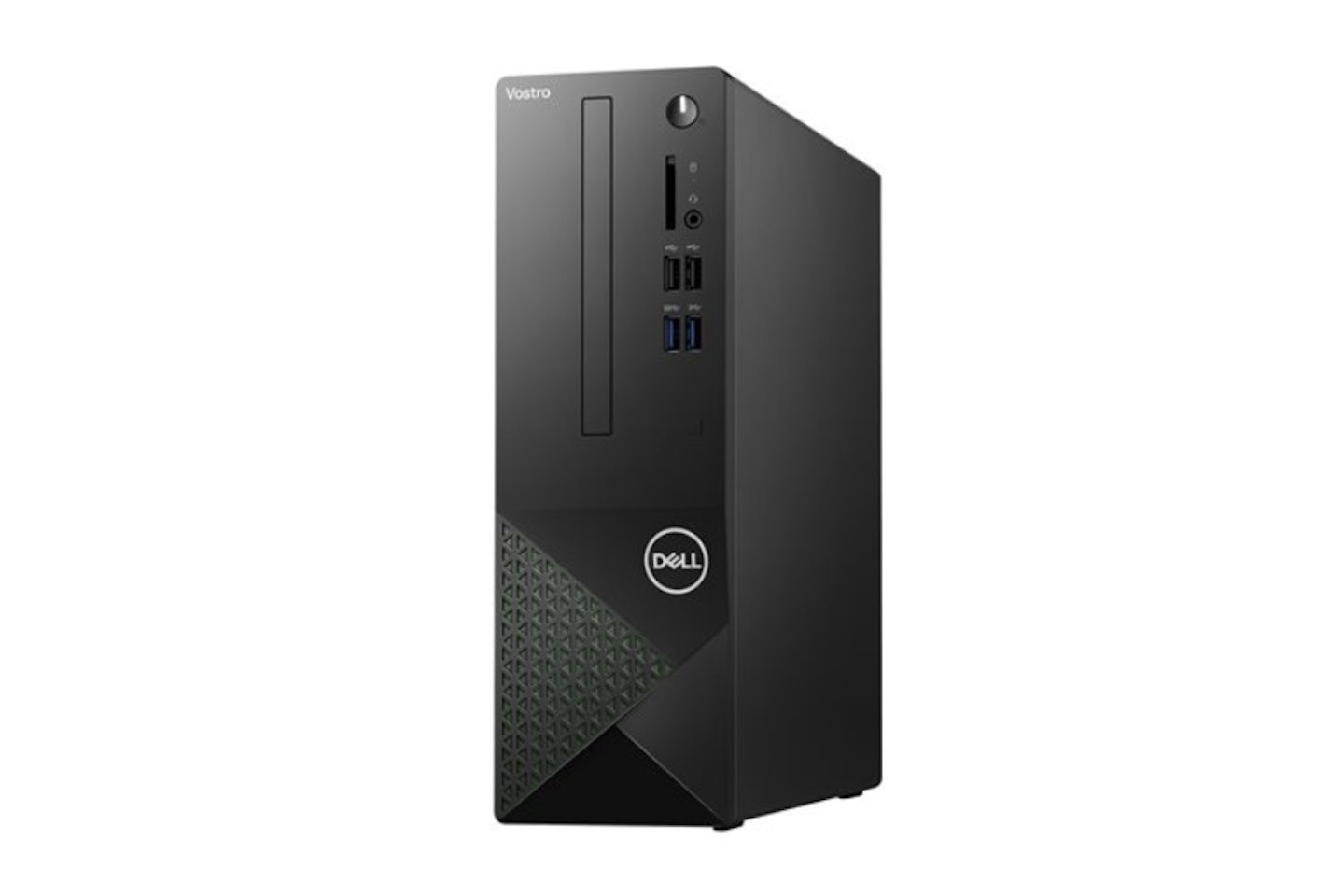
business.currys.co.uk
Dell's Vostro 3710 is the perfect blend of splendid hardware and elegant design in a simple case that's perfect for the home office without costing you an extortionate amount of money.
Sitting comfortably in the below £500 budget range, yet still managing to have Windows 11 Pro, a 12th generation Intel i3 CPU, and 256GB of NVMe SSD storage, the Vostro 3710 is nothing short of a great deal and isn't bogged down by a bulky, unnecessary design with far more flash than it needs.
Office work will provide no challenge to the Vostro 3710, and with Dell's included KB216 wired keyboard, you'll be able to start right away.
Pros
- Great performance despite its cheap price
- Subtle and small design
- An excellent number of USB ports
Cons
- Standard graphics card
| Graphics card: | Intel UHD Graphics 730 |
| CPU: | Intel Core i3 12100 |
| RAM: | 8GB |
| Connectivity: | HDMI 1.4b x 1, DisplayPort x 1 |
| USB: | USB 2.0 x 4, USB 3.2 x 4 |
| Storage: | 256GB |
| Software: | Windows 11 |
- Customer review: "Very fast-performing computer. Great for the office."
Tech Glossary: All jargon explained
RAM - Random Access Memory, or RAM, is a short-term storage used by the computer for temporary files which are especially useful for web surfing and heavy-duty programs such as games or video editing.
CPU - The CPU (or, Central Processing Unit) are commonly referred to as the 'brain' of the computer, its role is essentially to direct data to the correct hardware for execution.
GPU - The Graphics Processing Unit is the part of your PC reserved entirely for your computer's graphical needs - it renders the images you see on your screen, which is especially important with gaming and editing.
SSD - The Solid State Drive is essentially the same storage technology you'd find on a USB, they use electrical circuitry to transport data rather than HDD's more traditional writing method.
HDD - HDD storage (or, Hard Disk Drive) uses a physical disk which the storage drive physically writes upon to store and transmit data, making it much slower than SSD.
USB - Universal Serial bus or USB is a technology used to connect peripheral devices to your PC, but not all USB ports are equal. There are many types of USB ports - Type-A, Type-C, and some PCs mention the USB port's generation, but why does it matter?
Generally speaking a USB port with a later generation has a faster data transfer speed, making it better for quickly accessing and transferring data, the latest generation being USB 3.2, which can transfer data at a maximum speed of 20Gbps.
Security tips for your PC:
Strong one-of-a-kind passwords:
Create strong passwords for all your accounts using letters, numbers, and symbols. Avoid using common words or quickly guessable information. Consider using a password manager to keep track of your passwords securely.
Use Two-Factor Authentication (2FA): Enable 2FA for your accounts whenever possible. It adds an extra layer of security by requiring you to provide a second piece of information, such as a code sent to your phone.
Keep updated: Regularly update your operating system, web browsers, antivirus software, and other applications. Software updates often include security patches that help protect your PC from known vulnerabilities.
Use Antivirus: Install reputable antivirus and anti-malware software to scan and protect your PC from viruses, malware, and other malicious software.
Use a Virtual Private Network (VPN): A VPN encrypts your internet connection and masks your IP address, adding an extra layer of privacy and security when browsing the web. It's handy when using public Wi-Fi networks, as it prevents unauthorised access to your data. Make sure you grab one of the most secure VPN providers.
Be careful with email attachments and links: Avoid opening email attachments or clicking on links from unknown or suspicious sources. Cybercriminals often use phishing emails to trick users into downloading malware or revealing sensitive information.
Backup: Regularly back up your important data to an external hard drive or cloud storage. In case of a security breach or hardware failure, you'll have a copy of your data to restore.
Have a secure Wi-Fi network: Set a strong, unique password for your Wi-Fi network to prevent unauthorized access and use WPA3 encryption if available. Also, consider hiding your network's SSID (service set identifier) to make it less visible to potential attackers.
Don't use public Wi-Fi unprotected: Public Wi-Fi networks can be insecure. If you must use them, consider using a VPN to encrypt your internet traffic and avoid accessing sensitive information or logging into accounts.
Use a Firewall: Enable your computer's built-in firewall or install a reputable third-party firewall to monitor and control incoming and outgoing network traffic.
Be vigilant: Be cautious of the websites you visit. Stick to reputable and secure websites, especially when entering personal or financial information.
FAQs:
Are PC prices going down?
Since the beginning of the year, the prices of silicon microchips have considerably dropped because manufacturers have begun to produce them once more, meaning that lucrative scalpers can no longer buy up heaps of hardware to sell for profit and cause artificial scarcity.
As such, because of the recent influx of silicon microchips, we've seen a big price drop in hardware recently, so PCs have become much more affordable this year compared to during the pandemic.
When are the best PC deals?
You can find the ultimate PC deals during special event sales such as Black Friday, Cyber Monday or Boxing Day when most tech companies have some sort of deal on most of their tech.
Where are the best PC deals?
The best deals aren't exclusive to one site, but a brilliant space to find some lucrative deals is on Amazon, simply because of the sheer size of their catalogue.
Currys also has a huge amount of deals on their website all year round, but especially on Black Friday.
What are the most important components of a PC?
Each and every component of your PC is extremely crucial for the overall functioning of the PC, but when you're deciding between a strong CPU or a powerful GPU, it can sometimes be tough to know what to pick.
The best way to figure out what's best for you is by considering what you'll be using your PC for, are you gaming? Then a GPU is going to be crucial for great performance, are you looking for a great office PC with plenty of storage? Then RAM and storage are going to be essential for working with lots of documents simultaneously.
If it's GPU heft you're looking for, check out our picks for the best graphics cards of the year so far.
Laptop vs PC - what's the best?
Both laptops and PCs have their own advantages and disadvantages - laptops are extremely light, and modern laptops are incredibly quick, with plenty of storage, so why choose a desktop?
Well firstly, you generally get better performance from a desktop PC - components aren't condensed into a slim case, with only a small fan to keep them cool. PCs often have a multitude of built-in fans that can keep components cooler much more efficiently, which significantly improves the component's longevity.
And then, there's the issue of hardware failure, if a laptop component breaks, consider your laptop kaput. PCs, however, are easily repaired - users can swap out any faulty or slow hardware with ease, so they'll last you a lifetime.
